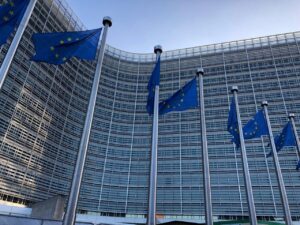-By introducing sanctions against companies that decided to engage in the Russian Nord Stream project, the USA sent a strong message, which says this endeavor is burdened with explicit political risk. At the same time the Americans have time and again proven that they will not shy away from executing their law even when it comes to huge west-European companies, which the French banks thank financed the Iranian regime painfully learned – writes Jacek Saryusz-Wolski, Member of the European Parliament.
Thanks to a cross-party consensus on the direction of the US policy towards Russia any bankrolling or other form of engagement in the German-Russian gas pipeline will be considered detriment to the company involved and will be met with an appropriate response from the financial markets. This increases the possible costs of acquiring funding for Nord Steam and makes the project unprofitable. The fact that Gazprom is still insisting on implementing it proves something which had been apparent since the beginning: it is a geopolitical project whose goal is to destabilize Ukraine economically and make Central Europe even more dependent on Russian gas.
The illustrious statement made by the head of the European Parliament’s biggest faction, a German CSU politician Manfred Weber, where he puts the Union’s security before the possible yet doubtful business benefits from Nord Stream 2 only increases the concerns among the companies that have been interested in building the pipe so far. Additionally, it would be hard to believe that these words, said during a debate on the state of the European Union address, which the most important parliamentary even in the year, were not consulted with anyone in Berlin. After the elections and the possible coalition between Christian democrats, liberals and greens (the so-called Jamaica) in Germany, the climate around Russian gas domination may change. This has been confirmed by the suggestions made by the European Commission, which hint that the possible negotiation mandate on NS2 may include a full adherence to the European law in the territorial waters and in the exclusive economic zones of the Member States.
A joint pressure and cooperation between the United States and the European Union makes sense: it may not only save Europe from making a costly mistake, which expanding Nord Stream surely is, but also constitute a forerunner of deeper energy cooperation. This is why we should all the more bemoan the EU Commissioner for competition’s lenient treatment of monopolistic practices perpetrated by Gazprom in our region. Perhaps if from the beginning the EU took a hard stand on executing the existing law, large west-European energy companies would stop and think before cooperating with Russia’s state giant.








